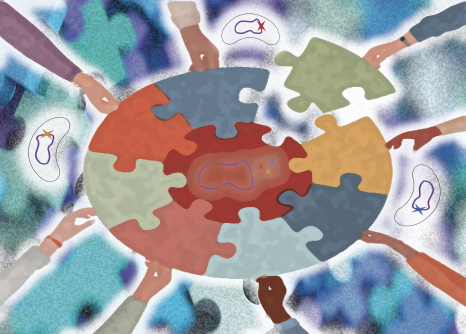Newswise — Kyoto, Japan -- Part of humanity's quest to better understand ourselves is to understand what constitutes the genetic makeup of the microorganisms in our environment.
Through metagenomic analysis, which bypasses culturing to enable the extraction of genomic information -- DNA sequences -- from environmental microbes, scientists may be getting closer to unlocking the secrets of microbial diversity.
The main obstacle with this reconstruction of metagenome-assembled genomes -- or MAGs -- technique, however, is in being able to distinguish between closely related genomes of microorganisms coexisting in the environment.
Now, a team of researchers led by Kyoto University has gone a step further, developing a method that comprehensively detects intraspecies genomic diversity, or microdiversity, of uncultivated bacterial DNA.
"This enhanced MAG method's ability to detect previously overlooked variations allows us to study the genomic information with a focus on the DNA sequence and structural traits of the genome," explains lead author Yusuke Okazaki.
The spectrum of microdiversity in environmental bacterial genomes has been found to be broader than expected. While some species maintain clone-like populations, others show such broad diversity that significantly challenges the reconstruction of DNA sequences. To this end, identifying microdiversity is crucial to understanding microbial ecology and evolution.
"Because most microbes in the environment are difficult to culture, identification of microdiversity among environmental microbes is limited," adds Okazaki.
To address this problem, the team took a three-step approach, starting with a comprehensive metagenomic sampling of an ecosystem, targeting bacterio-plankton groups sampled at two different depths over twelve months at a pelagic station on Lake Biwa.
In subsequent steps, genomic microvariants were found to be inconsistencies between the assembled genomic sequence and the pre-assembled DNA sequencing reads.
"This study opens up the future of high-resolution genomics in microbial ecology," the author notes, "helping us sort through what appears to be the same but is actually different."
###
The paper "Long-read-resolved, ecosystem-wide exploration of nucleotide and structural microdiversity of lake bacterioplankton genomes " appeared on 8 Aug 2022 in mSystems, with doi: 10.1128/msystems.00433-22
About Kyoto University
Kyoto University is one of Japan and Asia's premier research institutions, founded in 1897 and responsible for producing numerous Nobel laureates and winners of other prestigious international prizes. A broad curriculum across the arts and sciences at both undergraduate and graduate levels is complemented by numerous research centers, as well as facilities and offices around Japan and the world. For more information, please see: http://www.kyoto-u.ac.jp/en
MEDIA CONTACT
Register for reporter access to contact detailsCITATIONS
mSystems doi: 10.1128/msystems.00433-22
